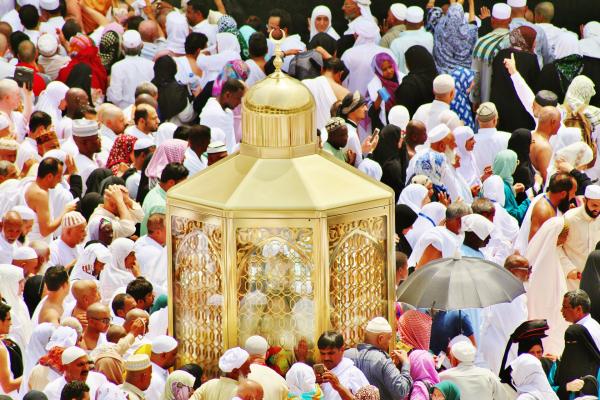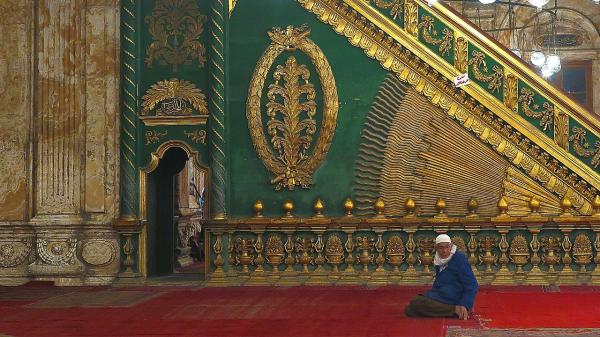
Catholics have priests, Jews have rabbis, Hindus have Pandits, but what are Muslim religious leaders called? Unlike most other religious, Muslim religion does not require any mediation of priests for prayers and worships, but that does not mean that there is no clergy in Islam. There are certain Islamic figures who function just like as priests do in other religions. They help their followers to understand their religion and its values in a better way. In essence, they act as spiritual guides for Islamic followers. This doesn't mean there isn't practical assistance also provided. Read this oneHOWTO article to find out what is a Muslim priest called, along with other relevant information.
Need of a Priest
The religion of Islam believes in direct contact with God. Therefore, its followers do not require any human mediator. Their priests are not actually ‘priests’, but teachers. These are the people who are well-versed with the Quran and they are called Hafiz. They may also call him an Imam, who knows an extraordinary amount about Islamic religion and values. They have gained such knowledge through their readings and constant search for Islamic knowledge. Again, Muslims do not need priests as mediators between people and God. Every Muslim individual is expected to live the life of equivalent of a preacher and demonstrate humanity to bring out the best in them.
Different Names Given to Muslim Priests
There are different names given to Muslim priests, as per their level of knowledge and geographical location. Some of the common ones are:
- Sheikh, Fazilatul Sheikh and Allamah: Muslims from the Arab continent call their priests a Sheikh, Fazilatul Sheikh and Allamah, as per the increasing order of their knowledge.
- Maulana: In the south-Asian sub-continent, they call them Maulana.
- Faih, Muhtahid and Ayatullah: Shiite Muslims call them Faih, Muhtahid and Ayatullah as per the increasing order of their knowledge.
- Imaam: Sunnis call them Imaam. Imaam is an Arabic word which means a leader who stands in the front. Therefore, Imaam is the religious leader who leads prayers in mosques just like priests do in churches.
- Mullah: Shias call them Mullah, which literally means religious teachers and leaders. Similar to a priest who studies the Bible, a Mullah studies the Quran and interprets its contents to make Islam clearer. They lead the congregant prayers and recite the Quran during divine periods like Ramadan. Most Mullahs also complete formal religious education of Islam.
- Sheikh: Sheikh is an Islamic leader who has learnt the Quran by heart and can recite Islamic verses and advice without the need of any reference. Although Arab Muslims can call any respected person more than 50 years of age a Sheikh, this is a flexible term and can be given to any individual who have memorized the Quran with expertise. Because of their knowledge and interpretation skills, they may act as the heads of different religious villages, universities and communities also.
- Imaam Khatib: Sunnis call their priest equivalent Imaam Khatib. Imaam means the person who leads a congregational prayer and Khatib means a person who preaches sermons.
- Allamah: Allamah is a prestigious title given to the highest scholars of Muslim values, philosophy and jurisprudence. It is used by both Shia and Sunni Muslims.
- Grand Imaam: Grand Imaam is the one who holds highest authority in the Sunni Islamic religion. Also called the Imaam or Imaams, they greatly influence followers of Maturidi and Ashari traditions. They believe that every individual will be called by his or her Imaam on the Day of Judgment.
- Grand Mufti: The term Grand Mufti is used to refer to the highest authority of religious Sunni Muslim community law.
- Muezzin: They are a person who makes the call to prayer, called adhan, for the Friday prayer at a mosque. They also make the call to prayer for salat or the five everyday prayers. Some mosques have special minarets or designated areas from where the adhan should be made. Major mosques have a special person designated to make these calls, while the Imaam themself makes the call in smaller mosques.
- Mujtahid: This is the person who works as an interpreter of Hadith and the Quran, the scriptures of Islam. Interpretation is required to understand and clarify Islamic law. A Mujtahid may work as an adviser to interpret religious matters of the local Muslim communities, such as in terms of divorce, inheritance and others.
- Ulama: Ulama is an Islamic scholar who understands both theological and practical values of Islam. They serve as a religious teacher, but do not necessarily perform prayers and functions in mosques. They perceive everyday problems with Islamic perspective and often work as a judge, professor or lawyer for Islamic values as well.
- Qadi: Qadi is the Muslim judge who is an Islamic legal expert. They usually begin as an assistant to a judge, and become Qadi with time and experience. They are legal experts of high rank who are allowed to declare fatwas.
There is nothing in the Koran (another word for the Quran) to exclude women from these positions, although some claim this to be so. If you look at the history of Islam, then there are many instances where women have taken leadership roles in the religion. Unfortunately, many more conservative congregations do not allow women to take certain leadership positions or relegate them to women only congregations. It is certainly more common to find men in these positions in many Muslim communities.

Muslim Religious Authorities
Since Islam religion does not recognize any authoritative source, it lacks the hierarchal structure you would see in a Catholic church. Every Muslim can interpret he Quran the way they wish. If you are not satisfied with the interpretation of one Imaam, you can approach another Imaam who may give you an agreeable interpretation. In some ways, Islam becomes a more democratic and egalitarian religion. It is only Muslim extremists take advantage of this loophole to propagate their perspectives and gain influence.
Grand Sheikh: Al Azhar of Cairo is believed to be the most significant religious center of the Sunni Muslim religion. Being operational since AD 970, it is also perhaps the oldest still-working university in the world. Al Azhar has the Grand Sheikh who is considered to be the top authority of Islam across the world. His opinions and declarations on important matters are considered to be supreme, whether it is child education, divorce, birth control or others. The only problem is that this person is appointed by the Egyptian government and the Muslim community as a whole does not always agree with this decision.
Grand Mufti: This is the 2nd highest rank who holds a position in the Egyptian government. There is an Islamic Research & Fatwa House in Al Azhar which has to directly report to the Grand Mufti.
Grand Mufti Sheik Abdul-Aziz al-Sheik: This is the top Islamic religious authority in Saudi Arabia. He heads the Council of Ulemas which is a body made up of highly qualified Islamic scholars. The council, along with approval from the king, selects the members. They are considered to be the leaders of Islamic morality and work as guardians of the Muslim society. For instance, they issued a Fatwa against Pokemon, declaring that it is against Islam morals and it is harmful to the religion. Therefore, Muslim parents should warn their children against playing this game.
Summary
The Islamic religion does not have a priest, as they believe in directly communicating with God and there is no need of any human intermediary. Each and every Muslim has equal access to God, so NPR (no priest required). However, there are certain figures who have a better understanding of the Quran and they can better show the right path to Muslim followers.
Some authoritative individuals also carry out prayers at mosques and give legal declarations as per Islamic morals and ethics. Certain authoritative positions are the Imaam, Sheikh, Mullah, Grand Imaam, Grand Mufti, Ulama and Qadi. These people are the leaders of Islamic faith and rule their community as per their interpretations of the Quran.
If you want to read similar articles to What Is A Muslim Priest Called?, we recommend you visit our Culture & Society category.